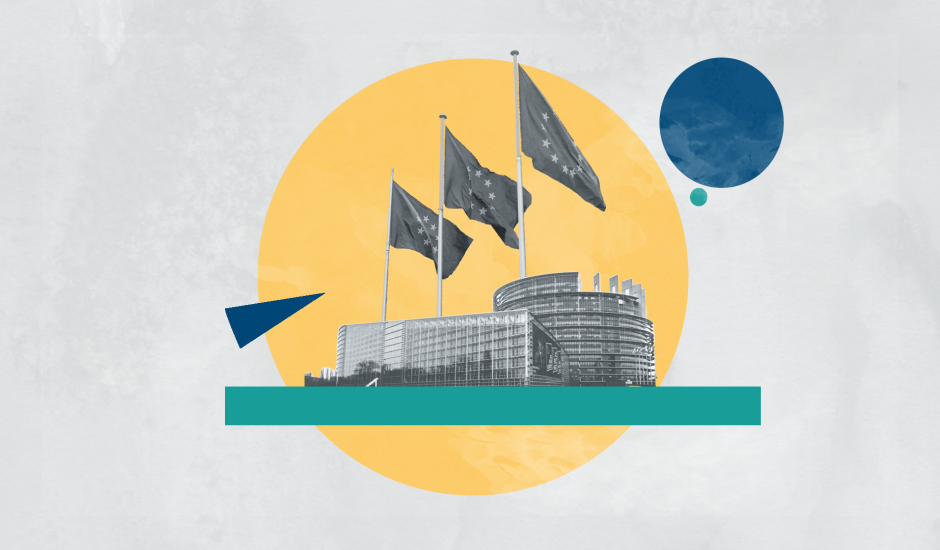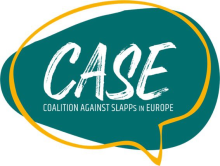European policies
Over the last years, CSOs in broader Europe have voiced increasing concern about the legal and practical challenges affecting their work. These include:
- Regulatory environment: (changes in) legislation that affect CSOs’ work;
- Finance and funding: availability and accessibility of resources;
- Right to participation: difficulties in accessing decision-makers and providing input into law- and policymaking;
- Ensuring a safe space: attacks on, and harassment of, human rights defenders, including negative discourse aimed at delegitimising and stigmatising CSOs.
These challenges are often cumulative, putting pressure on CSOs and activists. Measures restricting civic space (particularly the freedom of expression, assembly, association and right to participation) not only impact on the functioning of CSOs, but also inhibit civic participation, public debate as well as media pluralism.
In Europe, civic space has been under attack not only in countries of Central and Eastern Europe or of the Balkans, but also in the continent’s older, established democracies. According to CIVICUS Monitor, civic space is “narrowed” in 12 countries across Western Europe (Austria, Bulgaria, Croatia, France, Greece, Italy, Latvia, Poland, Romania, Slovakia, Spain, and the United Kingdom) and “obstructed” in one (Hungary). In addition, the public feel that they do not understand how various European institutions work and, on the other hand, that their concerns are not considered enough by European bodies.
The European Union (EU) aims to become a global standard-setter and deliver frameworks that protect and empower citizens, businesses and society as a whole. Through the protection of privacy, the EU is establishing itself as global role model for the digital economy, including artificial intelligence (AI) and climate. It is also starting to become more alert and proactive at protecting civic space and its policies are tackling the threats to civic freedoms and fundamental rights.
ECNL supports legal and policy environments at the EU and Council of Europe level that enable individuals, movements and CSO to exercise and protect their civic freedoms of association, assembly, participation and right to privacy. Thematically, ECNL’s work is focused on policies such as security, technology and AI, which have an impact on civic freedoms.
We:
- Monitor and research European, but also national level practices in all mentioned areas in order to identify and understand drivers of restrictions and trends. In 2024 we launched the "MACS project" to monitor civic space in member states. Under the "ParticipatiON project" we explore emerging models for citizen participation and support CSOs to enhance their engagement in participatory processes. Both projects are funded by the EU.
- Support local and European level CSOs by analysing good practices, working with partners to adapt or reform laws, collecting evidence of the impact of different measures on activists and CSOs to help construe arguments for advocacy, and joining work with pro-bono lawyers to support litigation for civic space. Under the EU-funded "Catalyst of Change" project, we support women’s rights, environmental justice, and anti-corruption organisations in 5 EU countries.
- Amplify the voices of our national partners within the European dialogue to ensure that they have access to and directly shape policies which influence their activism. We work with partners, especially through networks in the EU, Europe’s Eastern Partnership, Western Balkans, to advocate for a more enabling environment for civic space, philanthropy and participation. We also build expertise and dialogue on the impact of using AI and digital technologies for fundraising, online and offline activism and participation.
EU Rule of Law and Civic Space
A shrinking and threatened civic space with legal or practical restrictions to the freedom of assembly, association and expression is an important indicator of a weak rule of law environment. ECNL works on strengthening the EU’s rule of law mechanism so that it includes stronger civic freedoms and civil society protections. Some of our recommendations for EU’s annual rule of law reports call for a revised methodology that recognizes civic space as a core pillar; civic space indicators in the periodic monitoring exercise; and an alert mechanism for CSOs to signal the EC about severe fundamental freedoms’ violations. See more here.
EU Law Safeguarding Civic Space
ECNL’s Handbook on how EU law can be used to support litigation and advocacy against civic space restrictions has been used by CSO partners in Hungary, Spain, Austria, Poland, and Denmark. Michael O’ Flaherty, the Director of the EU Agency for Fundamental Rights, noted “This handbook closes an important gap, by showcasing how EU law and the Charter can be used in practice to protect civic space. It has the potential to help human rights defenders enforce their rights and their space to operate.”
Civil Dialogue at EU level
ECNL is contributing to the work on the enhancing civil dialogue in the EU, through making the “right to participate in the democratic life of the Union'' a reality, as enshrined in Article 10 of the EU Treaty. We also seek to seize the opportunity to “make known and publicly exchange their views in all areas of Union action” and participate in an open, transparent and regular dialogue with the institutions (Article 11 of the Treaty). More about our asks here.
Conference on the Future of Europe
We believe that as citizens and organised civil society, we must be heard by the EU, and our ideas must be really taken into consideration by decision-makers. The Conference on the Future of Europe is one place where meaningful participation ought to take place. ECNL was therefore part of the Civil Society Convention on the Future of Europe and informal CSO Conference Network to help ensure that civil society has a meaningful say before, during and after the Conference. This includes ensuring coherence and follow up to European citizens’ demands and aspirations that are brought forward during the Conference (start date expected to be May 9, 2021). See also more about our work on meaningful public participation rights here.
EU Tech and AI regulatory framework
ECNL is contributing to the EU Commission horizontal regulatory proposal for AI based on 2020 consultation and its White Paper, which presented policy and regulatory options “towards an ecosystem for excellence and trust”. The consultation itself attracted over 1200 contributions from European citizens, Member States, civil society, industry, academics and other stakeholders, including ECNL's. In addition, ECNL urged EU policymakers to use the forthcoming Digital Services Act as an opportunity to create binding transparency rules for online platforms, since their function is crucial to the development of opinions and therefore to the exercise of democracy. We were also proud to join 40+ organisations in the #ReclaimYourFace campaign launching a European Citizens Initiative calling on the EU to ban biometric mass surveillance.
EU anti money laundering policies and impact on civic space
ECNL engages the European Commission on anti money laundering policy, laws and regulation that also impact non profit organizations within the EU and beyond. The main issue is striking the right balance in protecting freedom of association and privacy when designing measures against money laundering. We also contribute to the EU Supra-National Risk Assessment of non profit sector regarding money laundering and terrorism financing. See more here.
Strategic Litigation Against Public Participation (SLAPP) in Europe
We are proud members of the Coalition Against SLAPPs in Europe (CASE) and with our partner NGOs we work to denounce legal harassment and intimidation of activists, provide resources for anti-SLAPP protection, facilitate access to pro-bono legal aid and advocate for comprehensive law reform.
Council of Europe
ECNL frequently collaborates with Council of Europe bodies, including Conference of INGOs and Moneyval on the topics of increasing protection of civil society, inclusive participation and addressing negative impact of counter-terrorism and anti-money laundering measures on civic space. For example, ECNL contributed to drafting the background report and the text of the Council of Europe Guidelines for Civic Participation. ECNL is also representing CINGO in COE’s Committee on Artificial Intelligence (CAI) and our Executive Director is member of the COE Expert Council of NGO Law.
OSCE Office for Democratic Institutions and Human Rights (ODIHR)
ECNL’s Executive Director is member of the Panel of Experts advising ODIHR on freedom of peaceful assembly issues to help improve legislation and monitoring of protest rights.
Eastern Partnership region
ECNL is leading efforts in monitoring enabling environment for civil society in the 6 Eastern Partnership countries through the CSO Meter. We work to empower a critical mass of CSOs that can use the findings from this monitoring effort to advocate for improving the environment in each country and across the region. ECNL experts have been delegates to EaP Civil Society Forum and contribute to EU policy discussions affecting the region.
Western Balkans
ECNL supports local CSO partners, groups and activists in various Western Balkans countries on protecting and promoting enabling environment for civil society. We also provide knowledge building activities on new trends and developments as well as connect partners with regional and global advocacy efforts. Read more about our recent work in Serbia, Bosnia and the Balkans.
National level support within the EU
We link our EU-level work by bringing it to the national level through providing support to and exchanging knowledge with local organisations on different (cross-cutting) themes. For recent examples from our work, see the news updates from Slovakia, Hungary, France, the Netherlands, Austria and Denmark.
- #EUlaw4civicfreedoms: Our blog series focusing on how CSOs can use EU law to safeguard civic freedoms.

